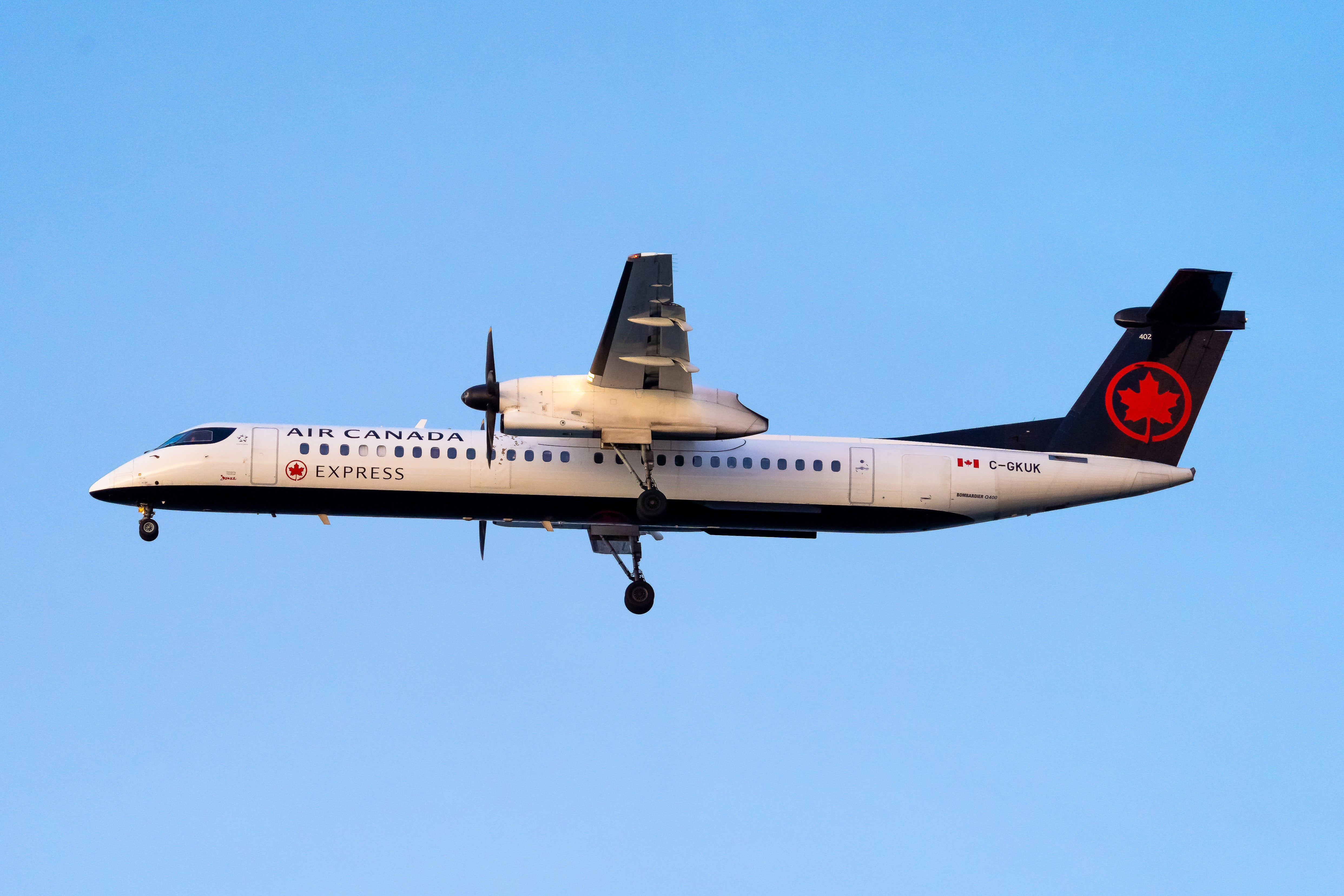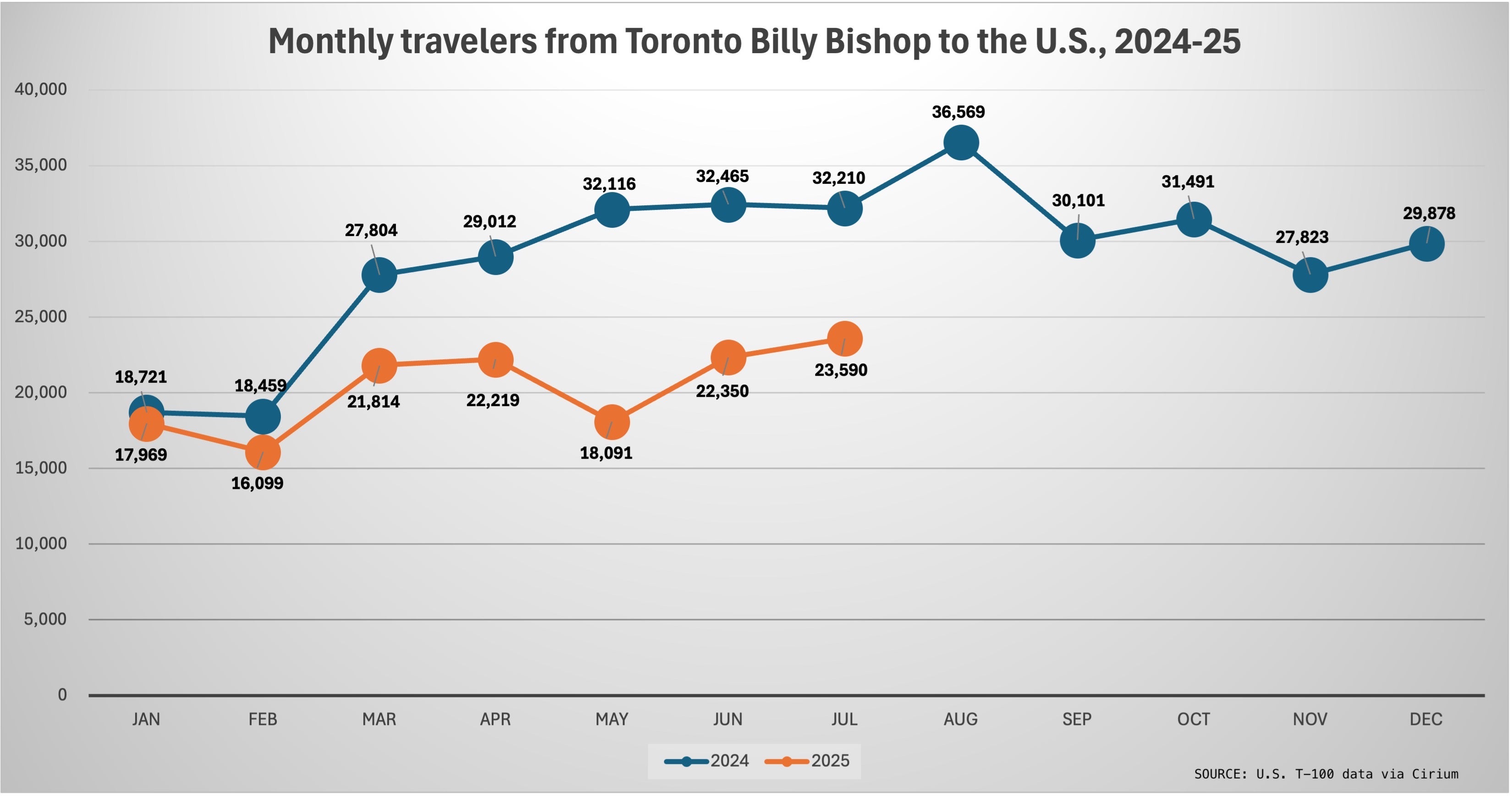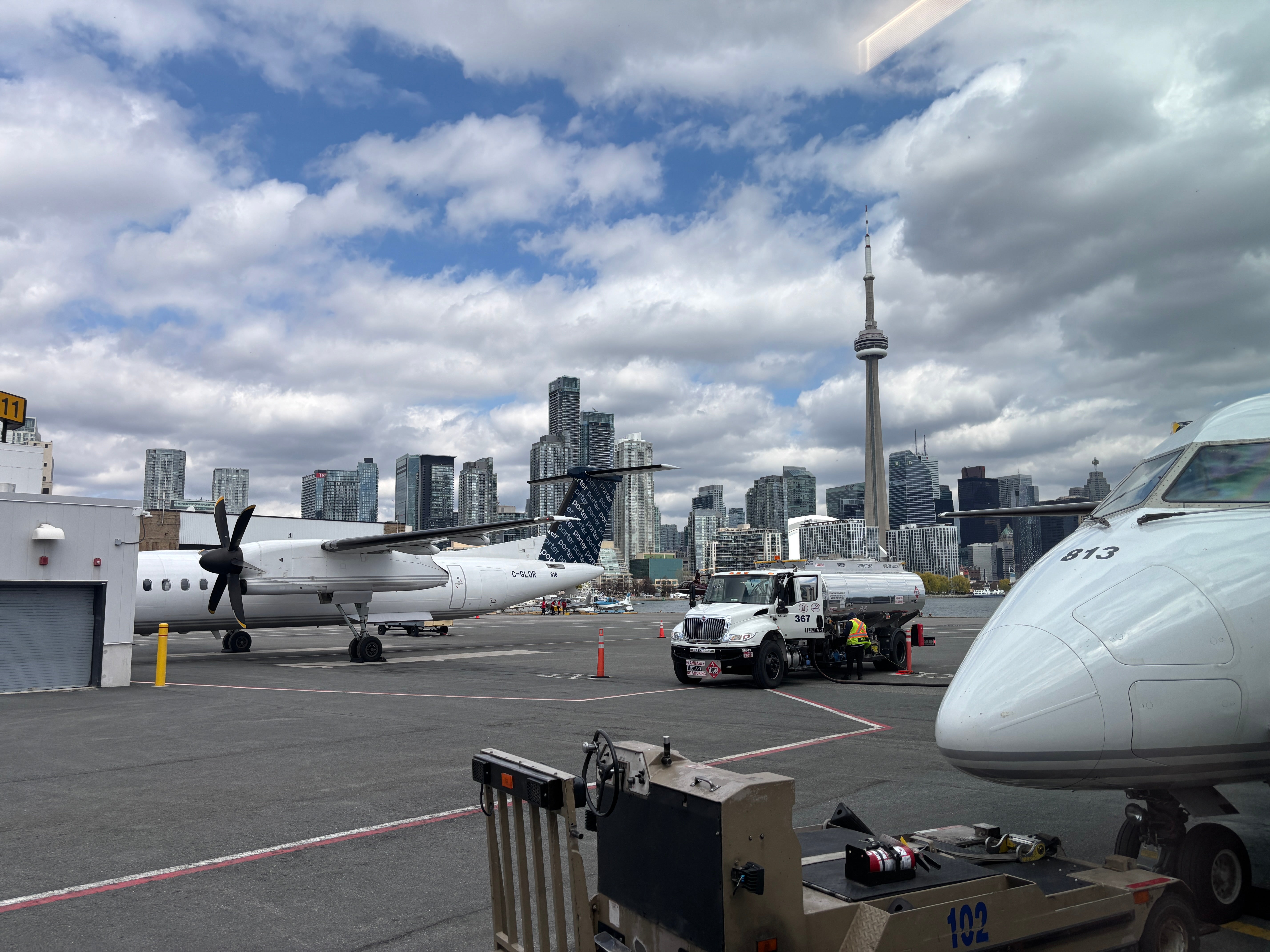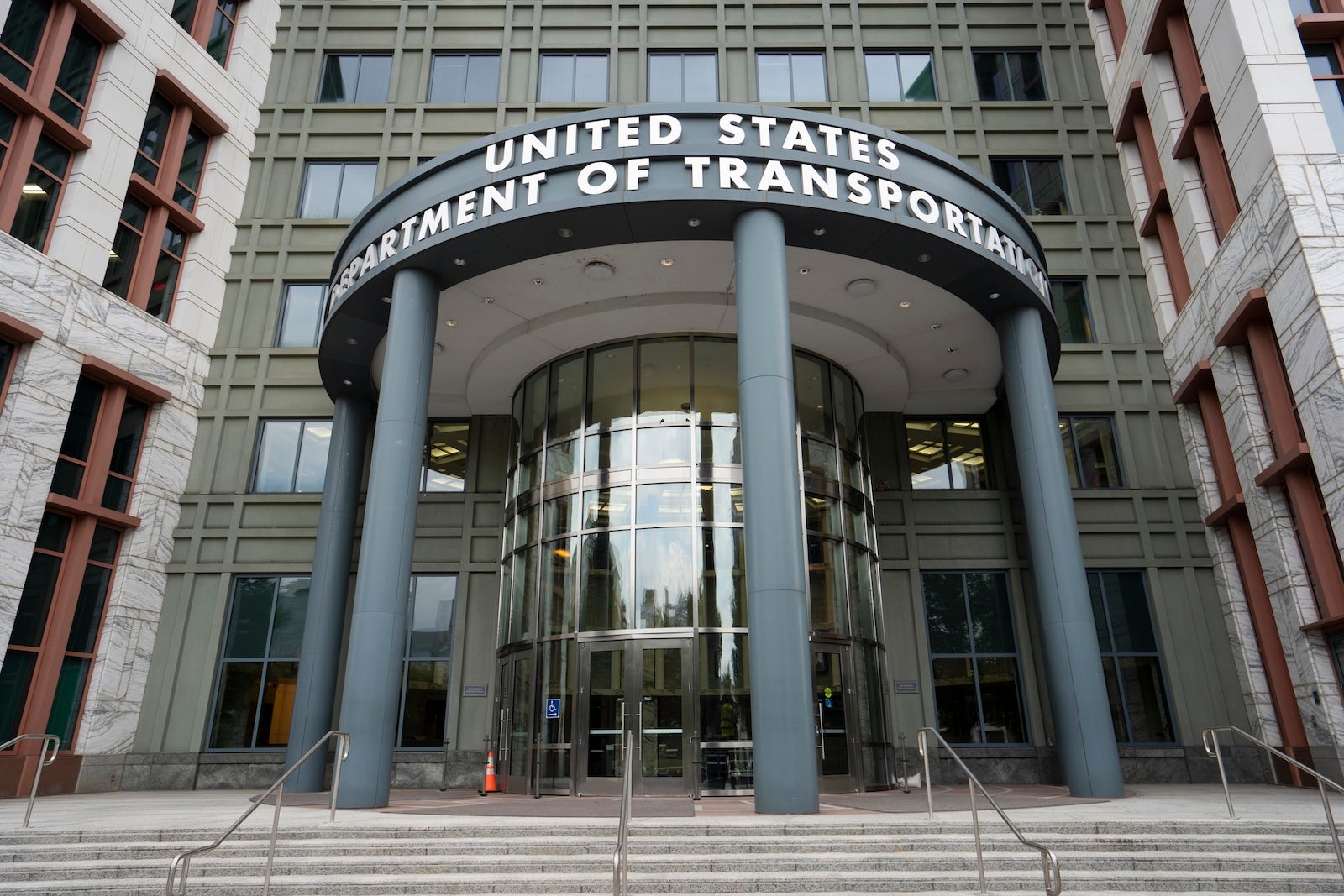Next spring, a quiet battle will unfold above the waters of Lake Ontario. Air Canada is poised to challenge Porter Airlines’ long-held dominance at Toronto’s Billy Bishop Airport, a unique gateway known for its convenient downtown location and restriction to smaller, quieter aircraft.
For years, Porter has enjoyed a monopoly on U.S. routes from this island airport, a privilege that’s about to be tested. Air Canada’s announcement of non-stop flights to Boston, Chicago, New York, and Washington D.C., beginning in March 2026, marks a significant shift in the regional aviation landscape.
The stakes are high. While the promise of increased competition hints at potential savings for travelers, a closer look reveals a more complex situation. Demand for travel between the U.S. and Canada is actually declining, and even Porter is struggling to fill seats on its existing routes.

Billy Bishop Airport, accessible by tunnel and ferry, offers a uniquely convenient entry point to Toronto. However, recent data paints a concerning picture: passenger numbers to the U.S. have dropped by a quarter in the first seven months of 2025, forcing Porter to reduce its flight capacity by 20%.
This downturn contrasts sharply with Toronto Pearson International Airport, where the decline in U.S.-bound passengers was a more modest 9%. Overall, air travel from Canada to the U.S. has fallen nearly 12% compared to the previous year, raising questions about the viability of expanding service from Billy Bishop.
Air Canada executives remain optimistic, pointing to continued strength in business travel and a favorable exchange rate for American tourists. They also emphasize their loyal customer base and a strategic partnership with United Airlines, which could help fill seats on the new routes.

Initial fare data suggests travelers could see immediate benefits. The launch of non-stop service to New York’s LaGuardia Airport is projected to lower one-way fares by 28%, from $185 to $133. This is made possible by a new U.S. Customs and Border Protection facility opening next spring, streamlining the arrival process for passengers.
However, the picture isn’t uniformly positive. Fares to Boston and Washington D.C. remain unchanged, and surprisingly, flights to Chicago have actually *increased* in price by 72%, jumping from $111 to $191 one-way.
Experts suggest that broader geopolitical uncertainties may be contributing to the volatility in airfares. The relationship between the U.S. and Canada has experienced periods of tension, impacting traveler confidence and potentially driving up prices.
This move by Air Canada isn’t simply about adding routes; it’s a calculated challenge to Porter Airlines, a competitor that has been steadily expanding its own network. Air Canada has a history of aggressively targeting rivals, and this expansion at Billy Bishop appears to be a direct response to Porter’s growth.
Porter, for its part, remains confident in its position, emphasizing its commitment to providing a distinct and high-quality travel experience. The airline intends to continue building its network and believes its unique service standards will continue to attract passengers.
The coming months will be crucial. Whether this expansion ultimately benefits travelers or leads to a costly battle between two airlines remains to be seen. The fate of these new routes, and perhaps even the future of air travel from Billy Bishop Airport, hangs in the balance.






